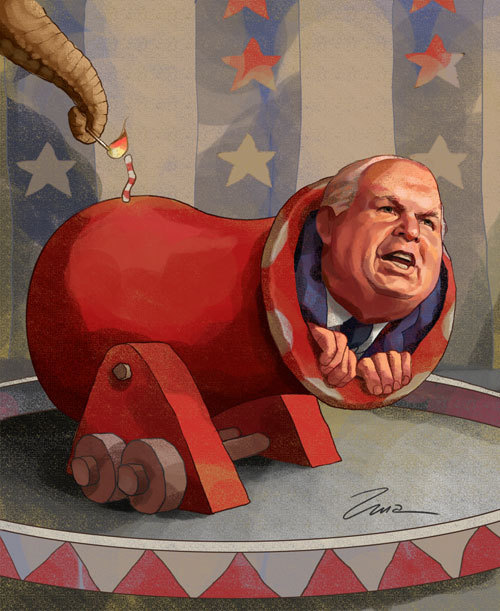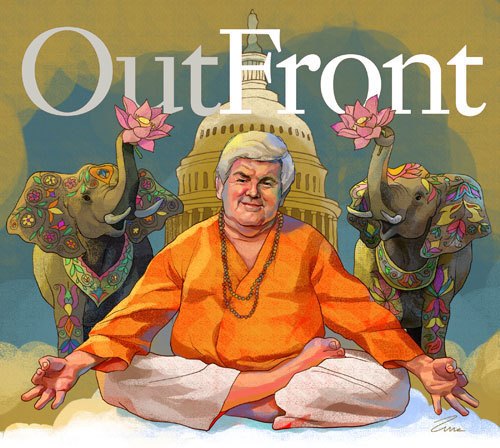The morning of Friday, Jan. 16, 2009 was one of the worst moments of my life.
It was the first time in all the years that I’ve worked at the American Civil Liberties Union that I’ve come to work knowing that not only is my friend, Todd, not going to be there that day, but that he’s never going to be there.
All the stories I’d saved to tell him during the three weeks he was on the respirator. I will not tell them to him. Not ever again.

Todd Drew (May 13, 1967 ~ January 15, 2009)
Todd was my friend and I loved him. Todd and I, we were ridiculous together. So far as I could tell, I started working at the ACLU and Todd became my friend. And, from that moment on, I could always count on him, a constant, I could set my clock by him, my confidant, my rock to lean on, a big brother who looked out for me.
We fell into an easy friendship.
There were things that Todd and I disagreed about and debated with fierce laughter but we never had an argument.
For instance, Todd supported Ralph Nader and resisted my effort to get him to vote for John Kerry. He planned on voting for Nader again but ended up voting for Barack Obama. I don’t think I had to work too hard to convince him.
Todd was an extraordinary human being, kind, gentle, the most generous person.
I did not deserve nor did I earn the version of myself that I saw reflected back to me when I looked in Todd’s eyes.
He respected me, cared for me too much.
I figured this out: I knew Todd for exactly five years and five weeks. during that time, I could pinpoint where Todd would be at any moment. This is important, you see. I had to know where Todd was so I could reach out to him when I needed him.
So, whether it was a weekend and I was not at a game with him, or, maybe I was on vacation, traveling, when a thought occurred to me, I called Todd and we talked.
Since Todd never once took vacation in the time I knew him and he was always the first person in the building, I could, when I arrived at my desk in the morning, e-mail to him a lame joke and scoot around the corner to Todd’s office in time enough to see him smiling or laughing.
That is, if he didn’t come find me first.
And as we went for coffee in the morning, We talked about Baseball, of course. Politics, without fail. Life, too.
I would tell Todd stories and he would listen.
I told him about the over-the-hill soccer league I play in and Todd and Marsha came to watch me play. I told him stories about my sons, Gabriel and Aidan. Todd loved them, reveled in their foibles and antics.
Todd was as proud of my kids as I am.
He couldn’t come out of a bookstore without a book, or a magazine that he would want me to give to Gabriel and Aidan. Todd and Marsha came to their little league baseball games. Todd and Marsha came to our home and we went to Yankee games with them.
Todd and I, we were wound up in each others lives that way.
Todd and I had another relationship: I was his extra pair of eyes, not an editor, just an extra pair of eyes, on those tone poems — you know them as blog posts — that he gifted us with.
Todd, generous to a fault, would give me credit for untangling a thought, or sentence in a blog post, for editing something.
Yes, I read most of them. But I can tell you that the extent of my editing on practically all of them went something like this:
“Run with it.”
Or,
“Don’t change a word.”
Todd was simply a phenomenal man who wrote with a big heart.
I love Todd. I love him as a friend, as a brother. But I also envied Todd. I envied him as a writer.
Every writer needs a place to call his own,
Steinbeck had his Monterey.
So, too, Todd had the Bronx, specifically, that sliver of heaven called Yankee Stadium and the neighborhoods around it, a place teeming with characters who, although very real, in Todd’s hands, turn into something mythical:
The kids playing baseball in Parking Lot 15 because the city took away their ball fields.
Javier, the ex-pitcher from Puerto Rico, now a pugnacious pontificator about all things Yankees and New York
Henry, a steadfast supporter of Yankee players,
Jose, born in the Dominican Republic, and now living on the Grand Concourse
And that is to name just a few.
As a writer, I covet this place and wish I had such wonderful characters to write about But that’s not what I envied Todd for. What I envied Todd for is his voice, his writing voice.
Besides memories of his gentleness, his kindness, his inspirational presence, this voice, I believe, will be his lasting legacy. Todd’s voice is something else, light and free, compassionate, singularly knowing and tough but with no meanness, no ego, in others words, all Todd.
Todd’s voice belongs to time and, we could grieve that Todd had only 41 years on this earth, that he deserved more time to hone his voice, to see where it would carry him.
But, as Marsha would tell you, that’s not Todd. Todd doesn’t do regrets. For instance, I am heartbroken and angry and frustrated at his death yet I realize Todd’s integrity would not condone such feelings.
How could a man live such a fiercely principled life yet leave such trails of tenderness and kindness?
I miss him too much already.
In “The Record Lives”, which Todd wrote about Phil Rizzuto, he quoted Grantland Rice, who wrote for the New York Herald-Tribune:
For when the One Great Scorer comes
To write against your name,
He marks not that you won or lost,
But how you played the Game?
The old scribe could have been talking about Todd.


 When I was a kid, I was crazy for Mad Magazine, and a passionate follower of Mad’s campaign against consumerism and materialism in general, and against Madison Avenue and the world of advertising in particular.
When I was a kid, I was crazy for Mad Magazine, and a passionate follower of Mad’s campaign against consumerism and materialism in general, and against Madison Avenue and the world of advertising in particular.




